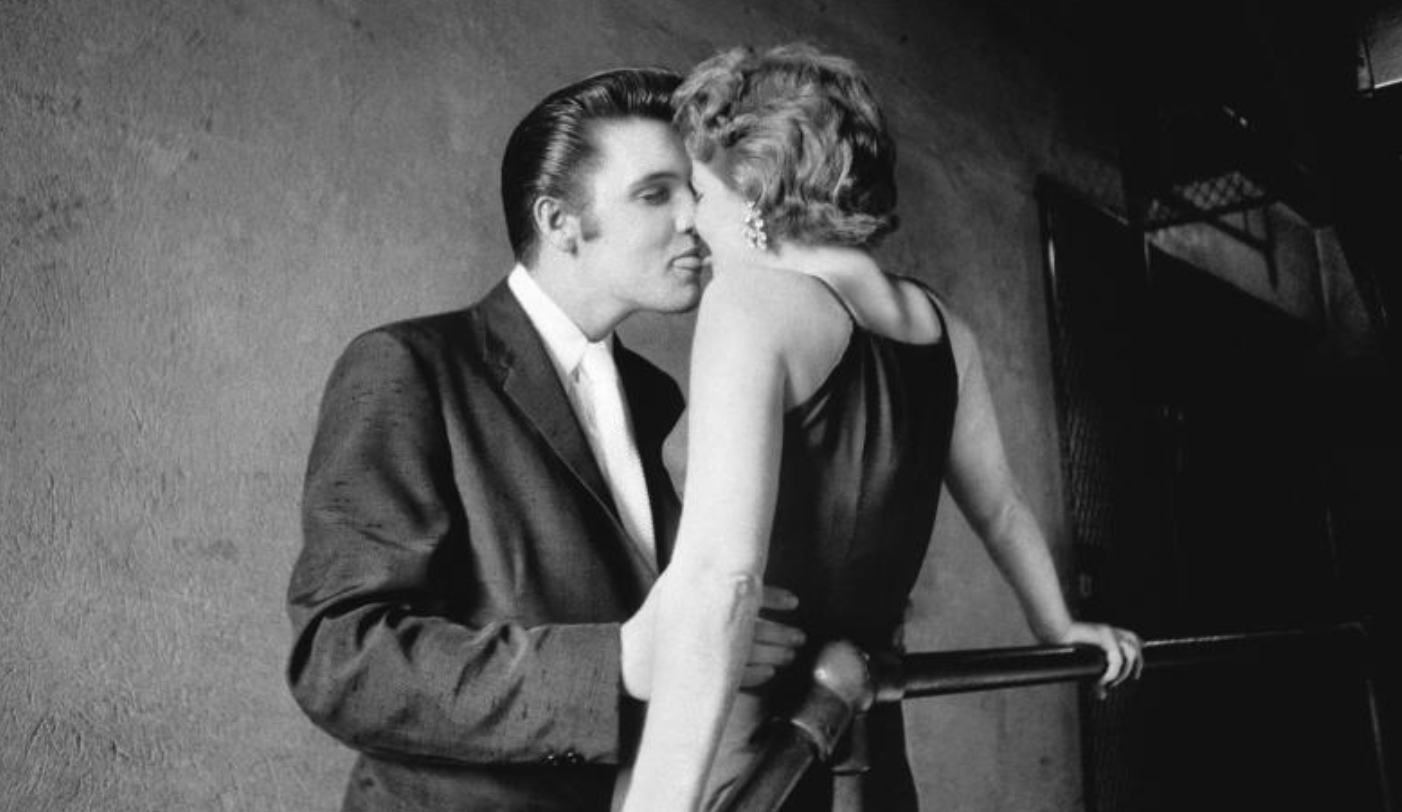Eugene Jarecki‘s The King (Oscilloscope, now playing) “is a nonfiction chronicle of the life and career of Elvis Presley, but it’s really a documentary-meditation-essay-rhapsody, one that captures, as almost no film has, what’s happening, right now, to the American spirit. What’s new — and revelatory — about The King apart from the soulful dazzle of Jarecki’s filmmaking, is that it asks, at every turn, a haunting question: When you take a step back and really look at what happened to Elvis Presley, what does [that] say about the rest of us?
“The King says a tremendous amount. In a way that no film has before it, The King captures how Elvis, while he was blazing new trails as an entertainer, was being eaten alive by forces that were actually a rising series of postwar American addictions.
“The healthy desire to be successful, and even to stay on top, evolved into an over-the-top lust to break the bank. Elvis started as a true artist, but in Hollywood his movies made a spectacle — almost a debased ritual — of commercial compromise. (You could chortle at a cheese doodle like “Blue Hawaii,” but you couldn’t argue with it, because it was the earliest incarnation of The Blockbuster Mentality.) And as an individual, Elvis, even as he remained a superstar, became the ultimate consumer. He ate and drank and ate some more, and sat on his gold toilet throne, and sealed himself off from the real world, like Howard Hughes on a junk-food binge that never ended. High on Dilaudid (i.e., opioids), Elvis shot out his TV screen with a gun. Today, he’d be on an all-night video-game bender.
“[Early on we’re shown] an inky-haired young rebel, who may have been the most handsome man of the 20th century, bring a vibratory erotic-ecstatic energy into the world (he didn’t invent that energy, but he channeled it, blended with it, and redefined it), and in doing so he changes the world overnight. He tilts it on its axis.
“The movie takes in Elvis’s rise and fall — or, rather, his multiple falls, which were harder to see when they were happening because they were always tied to (and camouflaged by) his success. Yes, he churned out mediocre fluff movies like pastel sausages, but only because he signed the most lucrative contract in the history of Hollywood. He made a self-parodying joke of himself in Las Vegas, but only because enthralled audiences never stopped lining up to see him. And even that easy-to-ridicule phase — the jewels, the blubber, the karate moves — became so iconic that it spawned a never-ending industry of reverent impersonators. Through all the kitsch and the dross, of course, Elvis never completely stopped making great music.” — from Owen Gleiberman‘s 7.1 Variety essay, “The King Is a One-of-a-Kind Documentary that Holds Elvis Up to the Haunting Light of Today.”

